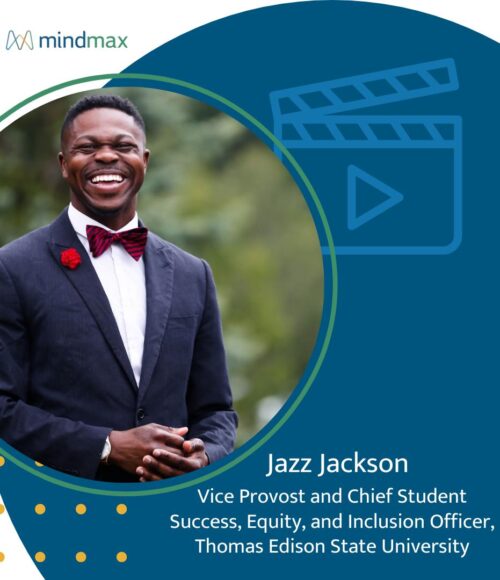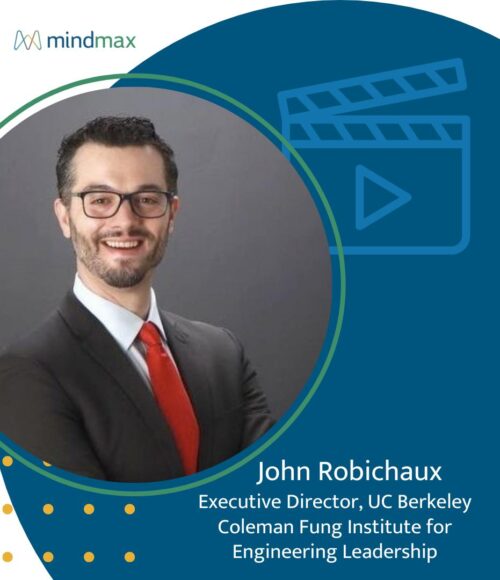Jazz Jackson Wants to Help Every Student Finish What They Start

Jazz Jackson Wants to Help Every Student Finish What They Start
Jazz Jackson, Vice Provost and Chief Student Success, Equity, and Inclusion Officer at Thomas Edison State University, speaks with MindMax CEO Lee Maxey about driving outcomes for adult learners—especially those with some college and no degree. His mission? Removing barriers and building supports that help students complete their education, no matter their starting point.
Jackson shares how Thomas Edison’s flexible model supports a wide range of learners through multiple entry points, prior learning credits, and frequent course starts. “We are in the business of changing the lives of students,” he says. “Any way we can do that—through access, support, and cost-effectiveness—we have to do it.”
From developing peer coaching and mental health services to launching a Job Hunters Club and expanding holistic support, Jackson describes a student-first culture designed to meet learners where they are and keep them moving forward.
Watch the full conversation.
Participants:
– Lee Maxey, CEO, MindMax
– Jazz Jackson, Vice Provost and Chief Student Success, Equity, and Inclusion Officer, Thomas Edison State University
Core Themes:
– Supporting adult learners with flexible, accessible education
– Building holistic student services to drive retention
– Creating scalable peer-led support systems
– Bridging academic and workforce needs through job readiness programs
– Centering student voice and agency in institutional design
Key Concepts Covered:
– The various methods Thomas Edison employs to help students complete their degrees, including leveraging prior learning credits and offering flexible enrollment options.
– A peer support program funded by a grant from the state of New Jersey aimed at helping students overcome challenges related to motivation and academic rigor.
– The success of the peer support program, noting that 7 to 9% of students utilizing it are persisting at a higher rate than those who do not.
– The rollout of a mental health program during the pandemic, emphasizing its engagement and support for students facing various challenges.
– The importance of holistic student support, including mental health and career development, especially in light of enrollment challenges.
– What it means to be the “fixer” of student success, highlighting the role in solving problems for students within the institution’s ecosystem.
Related Ideas
Jazz Jackson Wants to Help Every Student Finish What They Start

John Robichaux Wants Lifelong Learning to Drive Public Impact
